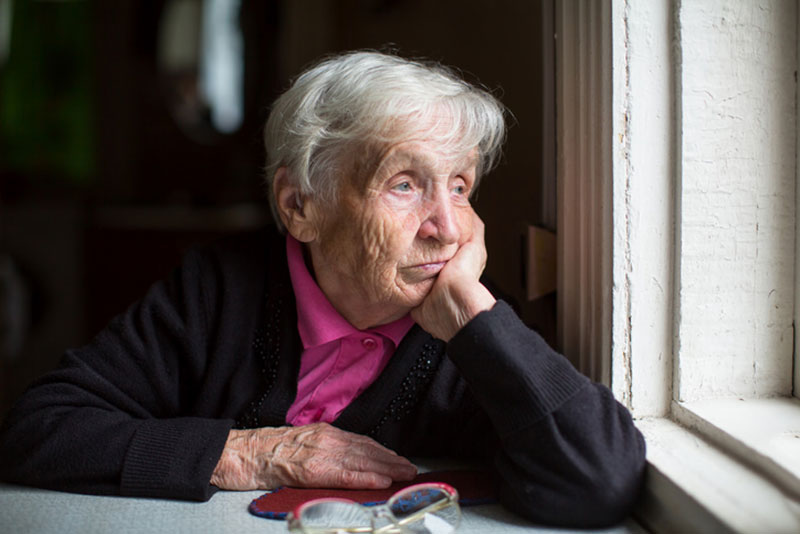
After the thrill of the holidays, it’s not unusual for the winter gloom to kick in. Yet what might appear at first glance to be a touch of boredom could in fact be something bigger that should be addressed.
Anhedonia, is a loss of interest in activities that someone once liked and is an indication of depression that is regularly overlooked in seniors. Anhedonia exhibits through symptoms such as:
- A reduction in emotional abilities
- The need to self-isolate and steer clear of social friendships and activities
- Unfavorable feelings directed at either other people or themselves
It’s always a good idea to consult with a doctor in the event that you observe any signs of depression in an older adult. Effective treatment solutions can be found to help. Additionally, there are actions family caregivers can take to help as well.
What Can You Do to Support an Older Adult Struggling With Anhedonia?
- Modify the diet. Foods that contain serotonin can help boost a person’s mood and fight depression. Add in more mood-boosting foods like dark chocolate, spinach, yogurt, whole-grain bread, and fruit.
- Encourage exercise. Physical exercise is yet another way to enhance mood through the release of feel-good hormones. Bring the grandchildren over to play, drop by the gym for a class or to go swimming, or simply go for a walk together.
- Improve sleep habits. Sleep deprivation and anhedonia can play off each other in a cycle of lack of motivation, anxiety, and fatigue. Create and keep up with a consistent sleep routine, have a light dinner and then switch off the television and devices, and end the day with relaxing activities such as working on a puzzle, reading a book, or listening to music.
- Socialize more. This one could be challenging, as anhedonia affects a person’s desire to be around others. Determine what types of social settings might feel less intimidating to the person: registering for a course, joining a group at their place of worship, regular lunch or coffee dates with a good friend or neighbor, etc.
- Point out the positives. Reminiscing can be helpful for a person with anhedonia, enabling the senior to share fond memories. Take a look at videos, photo albums, or scrapbooks together and ask the individual to share funny tales from the past. It may also help to start a journal of any happy moments that occur each day, in spite of how insignificant they might seem. At the conclusion of every week, look back through the journal together to see how many positives there are actually in our everyday lives.
It is also a good idea to encourage professional counseling, providing the opportunity for the person to consult with a therapist on a regular basis and to learn some coping tools to help. And, always try to be as empathetic and supportive as possible. This can be challenging with somebody who seems to be unable to break out of negativity, but it’s vital that you let an older loved one know you’re there with them no matter what the mood.
How Can Home Care Help?
An in-home caregiver is a wonderful resource for an older adult struggling with anhedonia. We can provide:
- Companionship for exercising, engaging activities, conversations, and enhanced socialization
- Transportation to medical appointments or fun outings
- Meal planning and preparation, using healthy, serotonin-rich ingredients
- And much more
Contact Absolute Companion Care, an award-winning provider of respite care in Towson, MD and the surrounding communities, at 410-357-9640 for additional information on how senior care can enrich life for someone you love.
